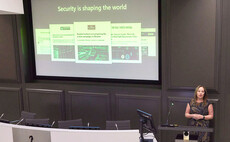Simultaneous multi-threading can make servers handle instructions more efficiently - if only operating systems would use it
A simple tweak to operating systems could reduce the power consumption of large data centres by as much as 25 per cent, according to researchers at the Australian National University, working with ...
To continue reading this article...
Join Computing
- Unlimited access to real-time news, analysis and opinion from the technology industry
- Receive important and breaking news in our daily newsletter
- Be the first to hear about our events and awards programmes
- Join live member only interviews with IT leaders at the ‘IT Lounge’; your chance to ask your burning tech questions and have them answered
- Access to the Computing Delta hub providing market intelligence and research
- Receive our members-only newsletter with exclusive opinion pieces from senior IT Leaders



















